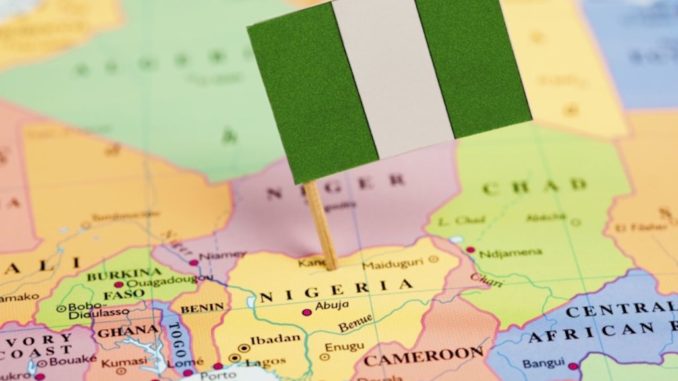The elevated political tension observed in the country ahead of the 2019 general election is negatively affecting major reforms expected to drive growth in the economy, analysts have warned.
The analysts said this in separate interviews with THISDAY.
This is just as the country’s external reserves have dropped to $47.069 billion as of last Thursday.
This represented a decline by $729 million in one month compared with the $47.798 billion it was as of July 2, 2018.
The last time the external reserves were around its present value was on April 18, when it closed at $47.082 billion.
Meanwhile, the past two weeks have witnessed political maneuvering and gale of defections by top politicians from the ruling All Progressives Congress (APC) to the Peoples Democratic Party (PDP).
This appears to be the preoccupation of government officials as they seek to salvage their political parties ahead of the elections.
Analysts listed the signing of the all-important Petroleum Industry Governance Bill (PIGB) into law, passage of other aspects of the Petroleum Industry Bill (PIB) by members of the National Assembly, constituting of boards for several government agencies, among others, as some of the reforms that are stalled by developments in the political space.
Speaking in an interview, the Director General of the West African Institute for Financial and Economic Management (WAIFEM), Prof. Akpan Ekpo, warned that the rumble in the political space could scare potential foreign investors.
He said, “Politics has taken over and the economy has taken the back stage in terms of policy formulation and implementation. Some of the good policies that the government had would be affected, which is worrisome.
“Again, some of the fundamentals might reverse if we don’t take time. All the massive defections we are witnessing, means that the political economy is not stable, because we don’t know what is going to happen.”
According to Ekpo, “if you don’t have political stability, you are going to have problems with the macroeconomic fundamentals going forward. My worry is that the politicians are not putting the country first.
“Right now, what is driving the economy is still the oil story. We were told that under the Economic Reform and Growth Plan, people made pledges, once they see what is happening in our political environment as well as the security challenges, they may not come.”
On his part, a Senior Lecturer at the Lagos Business School, Pan Atlantic University, Dr. Bongo Adi, expressed disappointment that, “nobody is talking about the economy anymore and everybody is focused on politics.
Adi explained, “The economy has taken a back stage and that is what always happens during election cycle. So, close to the election, this is always what you get. Nigeria is all about politics and struggle for power.
“We have no structure and we have no model. The economy has always suffered because it doesn’t run on any model. This is a sharing economy.
“Our economy is good if the oil price is good and if government is sharing the funds. Only those who have access to government funds and government patronage benefit from the economy.
“So, this is not a market-driven economy and it is not based on productivity. It is just centred around politics. And because the economy is centred around politics that is the reason politics always take the centre stage.”
Also, the Chief Executive Officer of the Financial Derivatives Company Limited, Mr. Bismarck Rewane, noted that as the political misunderstandings increase, economic costs escalate and US interest rates spike, “jittery portfolio investors are beginning to bolt.”
He revealed that $4billion of foreign portfolio investors (FPIs) had been lost since April.
According to him, “This situation is not being helped by an oil price that has suddenly plummeted six per cent to $71 per barrel and oil production stalled at 1.6mbpd.
“At the Nigeria Stock Exchange, the market has lost four per cent in 2018 as against a gain of 37 per cent during the corresponding period of 2017.”
Owing to the political uncertainties, Rewane predicted that the stock market would maintain its bearish sentiments and that portfolio investment inflow into the stock market would be stalled.
On his part, a research analyst at Anchoria Asset Management Limited, Mr. Adedeji Adewole, said the focus of governments at all levels ought to be “how to ensure sustainable development,” so as to enhance the country’s fragile growth.
“There is already a diversion in the focus of the government towards the political space and everybody wants to just get re-elected.
“And because of the re-election bid, that is why we have seen the exodus of people from APC to PDP. So, the government has already lost focus,” he said.
To a founding Partner/Director of Cardinal Stone Partners Limited, Mr. Mohammed Garuba, foreign direct investors (FDIs) “are all on standstill and everyone is waiting on the sidelines,” because of the tension in the political environment.
Garuba said, “The same way FDIs are waiting, is the same way Foreign Portfolio Investors (FPIs) are waiting because companies also cannot list.
“Today, companies cannot list, which is another smart way of attracting money in. FDIs usually do PEST (Political, Economic, Social, and Technological) analysis and Nigeria is already failing a lot of things from the first one which is political.
“By the time the current minister of finance tells you her plans, maybe the next time you want to meet her, she might be doing politics and by the time you finally get a meeting in another two to three months, she might not be there to continue the implementation.
“So, you start all over again because all the commitment made by this person has changed. So much policy somersault is affecting FDIs and they are frustrated.”
-Thisday




